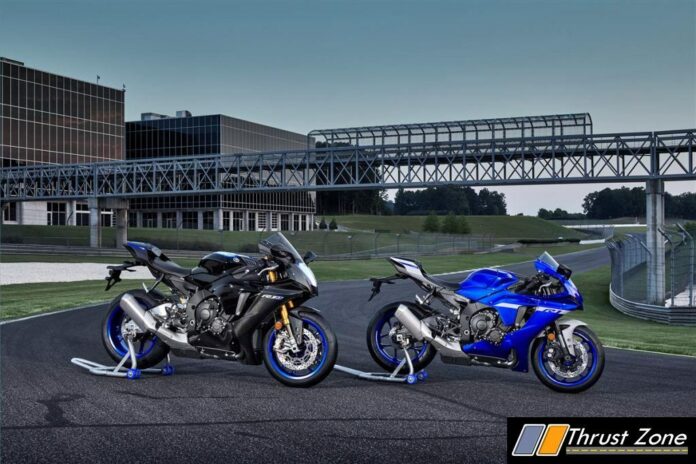Yamaha has taken the wraps off 2020 R1 and R1M at the American WSB round in Laguna Seca in California. We expect new R1 to make it to Indian shores by the end of this calendar year. The bike has undergone styling transformation and its new design makes it look like a pure racing machine. The revised design of the fairing which is now more aligned with the fuel-tank not only looks better but also aids the aerodynamics of the machine. In fact, Yamaha claims that the aerodynamic efficiency of the bike has gone up by 5.3% owing to the new design scheme.
The rigidity of the fairing has also been enhanced through a slew of measures including titanium panel for exhaust and placement of aluminum duct just behind the front section. Other significant changes include the addition of the LED headlamps and aluminum wheels and fuel-tank on both R1 and R1M models. Also, the new model is now more suitable for a range of riders in terms of riding posture and convenience.
The 998-cc engine remains unchanged though now it features a new fuel-intake system from Bosch and complies with Euro-V emission norms. The 10-hole design of the injector allows it to have a wide-angle spray, leading to higher fuel-efficiency. The net output 197PS of max power continue to remain the same; however, thanks to the incorporation of new rocker arms, cam lobes, and lighter throttle, the top-end performance of the bike has improved a lot. Exhaust system comes with two pairs of catalysers (total four) while suspension duties are handled by 43mm inverted forks from Kayaba. Yamaha has also improved rear suspension settings and revised damper for steering to improve ride and handling aspect of the bike.
In terms of electronic gadgetry, 2020 Yamaha R1 has received six-axis IMU, seven electronic control systems, and cornering ABS. The new engine braking management system allows you to alter the pressure of braking between high, medium, and low. Further, R1 gets a system to avoid locking of wheels by constantly monitoring the combination of the lean angle and the hydraulic brake pressure applied by the rider. What’s more, you also get a launch control feature on 2020 R1.





